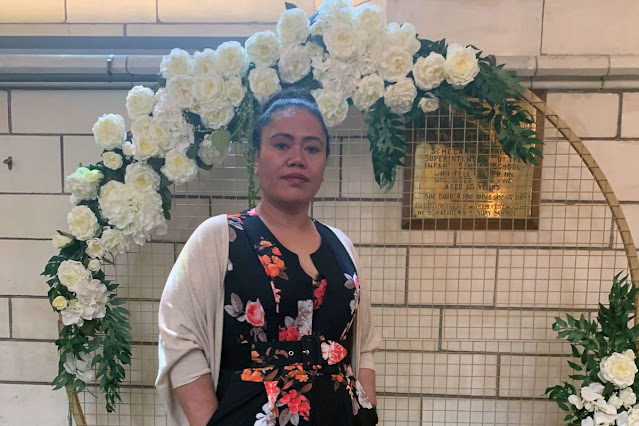Spotlight on: Amelia
Talanoa with Amelia, Community Library Manager at Māngere East Library
Tâlofa nî! Please tell us a bit about yourself and your relationship with Gagana Tokelau (the Tokelau language).
Mua mua e hiki te fakafetai ki to tatou Atua mo tona alofa ki a ki tatou te mamalu o Tokelau.
Firstly, I give thanks, praise and glory to God for his endless love he gives to his people of Tokelau.
E fakatulou atu ki te mamalu o te kaiga Tokelau i Niu Hila ma Tokelau vena foki ki o tatou tino i na koga kekehe i te lalolagi.
This is an acknowledgement to all Tokelau people in New Zealand, Tokelau and throughout the world.
Taloha ni. Ko toku igoa ko Amelia, ko au te pule o te faletuhi o Māngere East.
Hi everyone, my name is Amelia and I am the Community Library Manager based at Māngere East Library.
I am a country girl, born and raised in the heart of Aotearoa - which we all know is Taupo. I spent the majority of my life in the King Country and Waikato before I made the big move to Aukilani (Auckland). That was supposed to be for a short period and 15 years later, I’m still here.
The Tokelau language was a major part of my upbringing. This was the main language spoken at home. I remember my grandmother always asking us, ‘Is there a palagi in the house?’ whenever she’d hear the kids conversing in English.
We were taught so many of the ‘aga’ the cultural aspects of Tokelau and how to apply this to our everyday way of being. As a child and in my teen years, we were immersed in this way of life. We would have our Akoga Pehe where we would gather at the Tokelau Hall in Taupo to practice our church songs and later that week would have Akoga Hiva which would be dance practice for festivals or celebrations that our Tokelau community were invited to be part of.
The summers of Tokelau Kiliti have also been something I’ve been reflecting on lately. Our people gathering at the kiliti parks, meeting with family and friends, the sound of the island drums beating away when someone is out, the loud (and sometimes out of tune) singing and laughing.
While this is reminiscent of the ‘old’ ways it’s also a reminder of where I’ve come from and a promise to myself to keep our ways alive and relevant in my everyday life. As we’ve grown older and our elders have passed on, the onus is on us to try and keep our language and ‘aga faka Tokelau’ alive.
I do find that in our home, the language is predominantly English and can switch to Tokelauan and Samoan and occasionally the Tongan language from my partner when he’s conversing with our boy.
When our kids were younger, we tried to talk to them in the Tokelau language but with time constraints and being impatient, we switched to English and I do find guilt in letting that happen because we’re contributors to the statistics of losing our language.
How do you celebrate Vaiaho o te Gagana Tokelau?
Traditionally, we don’t celebrate Tokelau Language Week at home because it’s part of our everyday lives.
How do you connect with friends and family during this time?
Recently, I reconnected with one of the Tokelau groups in Auckland where fatele (song and dance) were taught for the biennial Tokelau tournaments that have participants from all over the country and afar.
It’s been a great reminder to keep alive the love you have for your culture and your language.
Do you have a favourite phrase or word in Gagana Tokelau?
One of my favourite proverbs is “He toeaina i mulivaka” (An elder leading us is always reassuring), which I heard a lot when growing up.
This was also in reference to making sure we had a great leader or great spokesman leading by example when it came to anything. I try to apply this to my everyday home and work life.
Fakafetai Amelia!
------
Find out more about Amelia and our many wonderful Pasifika community librarians, collections specialists and leadership, where they are based and how we can support you on the Auckland Libraries website.

Comments
Post a Comment